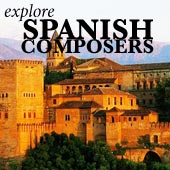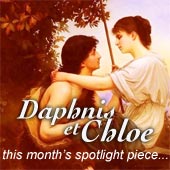Interview with Patty Mitchell, Oboist and Blogger
Patty Mitchell, professional oboist extraordinaire and blogger at oboeinsight, agreed to an interview with me. It's long and fascinating so grab something to drink and reed on! (pun intended).
1. What made you choose the oboe?
As is typical of many oboists, I began on other instruments.
I first started on piano when I was maybe 8 or 9, and while continuing with that took up flute in fifth grade. Sometime in sixth grade my mother suggested I switch to oboe (my older sister played flute and was rather good; I've always assumed my mother knew I didn't have the talent for flute so she wanted me to switch, but I've never actually asked her!).
I responded "Sure, what's an oboe?" We listened to the classical radio station and she would try to identify the oboe, not always sure she was correct.
I began in a summer school music program and I simply knew oboe was "mine". I didn't realize I would become a professional musician at the time, but when I started playing in a very advanced chamber orchestra while in high school I knew I wanted to go into music.
I landed my first professional job when I was 18! That first professional position, though, was not on oboe, but on English horn. For the first 25 years of my career I was mainly on that instrument.
2. Who writes the best music for oboe?
As far as ease is concerned, I love playing Telemann. He tends to sit well with my fingers I suppose.
But I adore playing Mozart orchestra and opera music quite a lot. For English horn I'm very fond of Ravel.
This question, though, is one that will change depending upon what I'm playing at the moment! I usually love whatever I'm working on!
3. What's it like playing for an orchestra?
In our symphony I'm the second oboist and the English hornist. In that group my biggest job occurs when there are English horn solos.
In opera I'm principal oboist so of course then it's all about the oboe. But playing in either group is a total joy! I'm most comfortable as a "team player", being surrounded by my colleagues and having the support of the orchestra when playing the solos that are given to me in the orchestral or opera setting.
I always tell people I have the best seat in the house! There's nothing like that fabulous orchestra sound when in the middle of it all. The sound just wraps around me. I wish audience members could come up on stage and experience it sometime. It's pretty amazing.
4. Blogging is a great way to connect and meet like-minded people. How has oboeinsight helped you as an oboist, both professionally and for fun?
I've met a multitude of musicians. Many are oboists, but others seem to connect with what I write about as well.
Some people have made a point of visiting me when they are in the area. Some have played for me, which is always a delight.
I've also connected with one person who then offered me a fun job for a week in New York. It wasn't a high paying job, but it gave me just the push I needed to go over to the other end of the country and visit with some family while having a fantastic musical experience at the same time!
I've learned of good oboe cane through visitors to my site, and I've also been introduced to new music. In addition I sometimes get books and CDs, although I turn many offers of those down since I feel obligated to review anything I receive and I don't have the time to handle all the offers!
(But if anyone wants to offer me a flight to Europe to review any concerts I'll gladly take that!)
5. How do you think the internet can help generate more interested in classical music?
I think so many believe we classical musicians are just uptight snobs, not because of anything we've done, but because of how we are frequently portrayed in movies, television, and in the written word.
If you read my blog you know I'm just another average Joe (or in my case Josephine I suppose) who is making her way in this crazy world. I'm quite honest about my fears and foibles. I'm also rather goofy.
I hope that by writing about my life and profession someone new to it might just want to try a classical concert, but of course I would guess that most people who land at my blog are already curious about oboe so my hope is probably more like wishful thinking!
6. What do you think the future is going to be like for orchestras such as yours?
Good question, and not one I'm sure I can answer at the moment. We are most definitely not what we used to be.
When I began this career in the mid-70s regional orchestras were all over the place. We were growing. Each year we had more concerts. Our salaries were on the rise and we were asking for more and more.
These days things are moving slower, and everyone is more cautious. Salaries are mostly not going up and some are going down. Orchestras are folding. (The first orchestra I was in declared bankruptcy after my 27th year there.)
We are all trying to find new ways to appeal without dumbing down what we do. We are told we need to be more visual, so we try to figure out just what that means. It's a challenge, really, and I don't think anyone has sorted it all out.
7. And the stalwart question here.... who's your favorite composer, and why?
Next I suppose you'll ask me "Who is your favorite child?" right? ;-) I honestly can't give you one name. Sometimes it's mood dependent, to be honest.
If I'm feeling like I want a "wallow moment" I might listen to a slow movement of Mahler. If I want total joy I might move to Mozart. But how to choose between Bach, Beethoven, Mozart, Johannes Brahms, Stravinsky, Poulenc, Mahler, Richard Wagner, Jean Sibelius, Puccini, Ravel, Prokofiev, Shostakovich, Adams, Piazzolla ... the list goes on and on ... so really? I just can't figure out how to choose just one!
8. Thanks very much!!! I'm still a bit new at interviewing so if you can think of anything else you'd like to talk about then I'm all ears... :)
It's interesting that you didn't touch at all upon the bane of the oboist/English hornist: the REED! We spend more time on reeds than we do on practicing so much of the time.
The majority of us make our own reeds, and it's a very time consuming and frustrating craft. We are trying to make a consistent tool out of inconsistent material (plant life!).
Reeds are, I believe, the reason that many consider oboists to be the most neurotic folks of the orchestra! ... and of course we carry incredibly sharp knives around with us! ;-)
... and why do I like oboe and English horn so much, even after all the reed woes? These instruments just really reach into the center of me.
I'm a very expressive player so they fit me well. I love that we get so much of the gut wrenching stuff to play. As I tell people who ask me what an oboe is: "If you are watching a movie and everyone is happy, you won't hear me. But if a couple is breaking up? If someone leaves? If someone dies? There I am. I'm there to make people cry!"
Of course if I have a bad reed day and sound like a duck they might cry too. So there's that .... ;-)


